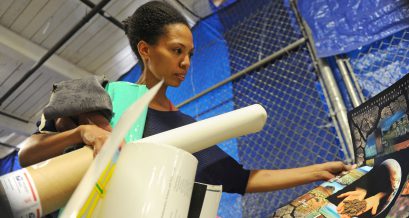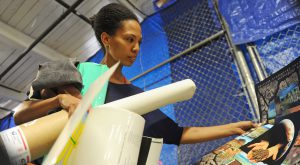Expanding learning time and opportunities for students is not about adding something extra to the school day. It’s not about creating a program or one more initiative for a principal to manage. It’s about helping schools develop new ways of doing business by working in partnership with communities to make the most of all the great assets we’ve built up…
-
Real representation for all
Monday, March 18, 2013What would happen if every single person accused of a crime in this country got a lawyer who his knew his name? Why he had been arrested? His version of events? His witnesses? His evidence? His case? What? That doesn’t happen?
-
The Perry Hall case and the danger of prosecuting youth as adults
Tuesday, March 05, 2013An unthinking “lock ’em up” approach does not adequately serve either the youth involved in criminal cases or the larger society. Maryland decision makers should rethink the practice of prosecuting and sentencing youth as adults and appropriately deal with all criminal cases involving youth in the system created especially for them—the juvenile justice system.
-
Justice Talking: Stories about crime, punishment, and life (and death) in the legal system
Friday, March 01, 2013The evening will feature seven storytellers telling seven-minute true, personal, tales about their experiences with the criminal justice system…
-
Audacious Thinking: Spring 2013
Friday, March 01, 2013In this special 15th anniversary edition of Audacious Thinking, Diana Morris talks about where we stand, Jane Sundius shares lessons learned about keeping kids in school, and Monique Dixon gives an update on the proposed youth jail.
-
Wasted: discharging patients from outpatient treatment
Monday, February 25, 2013Maryland’s preparation for the full implementation of health care reform on January 1, 2014 offers an exciting opportunity to make significant changes to our substance abuse treatment system. Open Society Institute-Baltimore and our grantees have spent many hours working to ensure that comprehensive substance abuse services are part of the essential health benefits in Maryland. This is an enormous step forward and will undoubtedly increase the number of individuals who are able to access substance abuse treatment next year.
-
Technocrats of the Drug War
Saturday, February 23, 2013The Washington/Baltimore High Intensity Drug Trafficking Area (W/B HIDTA) was named the 2012 HIDTA of the Year by the White House’s Office of National Drug Control Policy. The January announcement was made by the University of Maryland’s College of Behavioral and Social Sciences where the W/B HIDTA is housed. The little noted award ceremony, honoring a […]
-
Murdered in Maximum Security
Sunday, February 17, 2013Let us speak on behalf of the dead—because we are implicated in these particular homicides. But let’s first be clear on who these murder victims were. Ricky Bailey and Michael Armstead were convicted rapists. Charles David Richardson IV was convicted of murdering two people. They were not innocents. They were violent criminals. Yet all three […]
-
How to be gritty: what children don’t know can hurt them
Monday, February 11, 2013If you’ve heard more in the past year than ever before about the role that grit and resiliency play in student achievement, that might be “a response to No Child Left Behind and this narrow focus on standardized testing,” Angela Duckworth suggests.
-
DNA, Race and Public Safety
Saturday, February 09, 2013On February 26 the Supreme Court will hear arguments to determine the constitutionality of Maryland’s DNA collection law. The DNA Collection Act (2009) allows law enforcement to obtain and analyze genetic information from individuals without a search warrant who have not been convicted of any crime and have merely been arrested. Strongly supported by the […]





